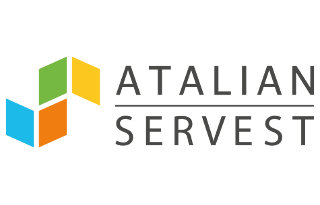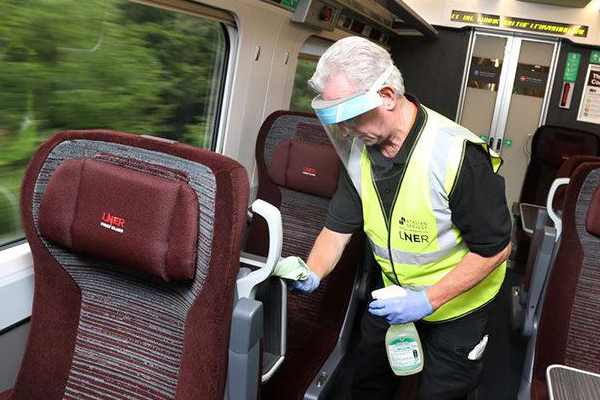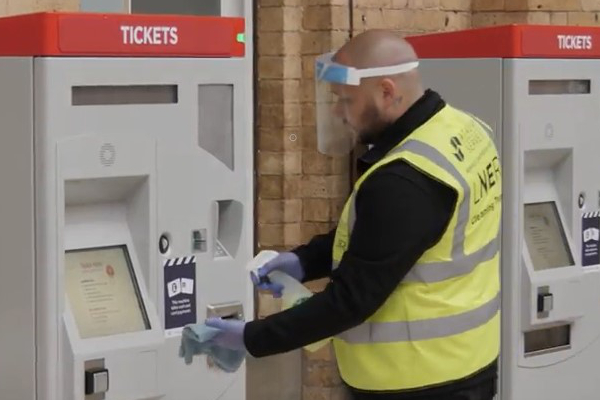
CASE STUDY

Competence responsibilities are a key component of the Facilities Management industry
Atalian Servest are a global facilities management company working across multiple sectors providing a wide range of services from cleaning to waste management.
They have a strong foothold in the UK rail industry, providing cleaning services to Train Operating Companies such as LNER, GWR, Eurostar, Southeastern and West Coast (Alstom). The business has grown rapidly over the last 3 years and is now refining their offering to make the business more robust.
Martin Catchpole joined Atalian Servest as Senior Health and Safety Manager in March 2020. It was recognised at that time that the sector wasn’t as regulated as the rest of the rail industry. There also wasn’t really an understanding of risk-based training needs analysis (RBTNA) and the value that this can provide in the training and management of a cleaning operative based workforce.

Having been awarded the LNER tendered contract at the back end of 2019, commitments were made to provide a training strategy and associated matrices geared at improving both operational delivery and safety. There was an opportunity and desire to align more with the industry and manage staff competencies on par with how the train operators deliver this. Atalian Servest recognised that to achieve this objective and effectively validate the approach, in light of the challenges the COVID-19 pandemic enforced, it was best to work with external industry expertise to develop a plan and a road map for deployment.

Cleaning operatives are perceived as the lowest skilled workforce and are provided with limited training programmes, however with analysis is it evident that the expectations, activities, safety requirements and roles within the rail environment, it is a sector that benefits substantially from the scrutiny and exposure as provided by a full risk based training needs analysis (RBTNA).
Atalian Servest looked to AssessTech as a solutions provider, with synergies in the contracted service portfolios of each organisation, who also offer an industry best practice eCMS (that is RSSB aligned and unlocks the potential of a thorough RBTNA).
They commissioned AssessTech to review the elements of their proposed competence management processes and draft training plan. The rollout, and use of smart devices across the contract, was also pivotal in order to improve the timeliness, accuracy and value of reporting and tracking development, monitoring and assessment of the management and workforce.
The findings of the report highlighted that there were certainly more elements of competence required than simply the cleaning activities, operation of equipment and rail environment awareness and a number of elements were recommended that would add value to the operation and improve safety.
To effectively implement the findings of the risk based training needs analysis, a recommendation was also made to procure a rail standard eCMS which would deliver the following benefits:
- Clear and regular reporting on current metrics
- Measurement of all parties to the same national standards
- Visibility of the workforce competence and compliance to standards
- Standard delivery of assessment processes by all managers, supervisors and team leaders leading to devolved accountability to deliver the CMS
The report also highlighted that not all of the modules require actual training, some were flags for improvements to induction, briefings, monitoring and assessment. The was also a key requirement to train the new management and supervisory team on how to effectively train, brief and assess the workforce.
Martin Catchpole, Senior Health and Safety Manager at Atalian Servest said, “The report from AssessTech has really shaped our thinking about what we should consider both now and in the future. It has highlighted how this has been a thorough, but modelled way, to create a road map to inform our approach and also assist in managing the contract and expectations of LNER around training matrices and operational strategy. It provides a gap analysis for the facilities management provider (us) against how the rail operators manage their learning & development and subsequent competence responsibilities. This work was undertaken whilst the Training Manager role was vacant and we used this budget effectively to commission AssessTech, as trusted experts in this field to carry out this work on a consultancy basis. I am very pleased with the outputs and insight provided and hope we can continue this relationship with another sector first, in the deployment of an eCMS.

“This is the start of our journey and things will evolve as we move out of lockdown. There will also be wider group learning from the work commissioned for the LNER contract and I am positive it will also influence future tenders and provide a platform for improvement, consistency and standardisation. The fact that AssessTech has produced such a detailed RBTNA provides assurance and also a potential competitive edge in business development terms, with regards to the management of safety, competence and workforce development. We will be able to apply and learn from this, not just with each rail contract, but also as a validated structure for our internal support functions in terms of training, safety and our management of people approach.”






